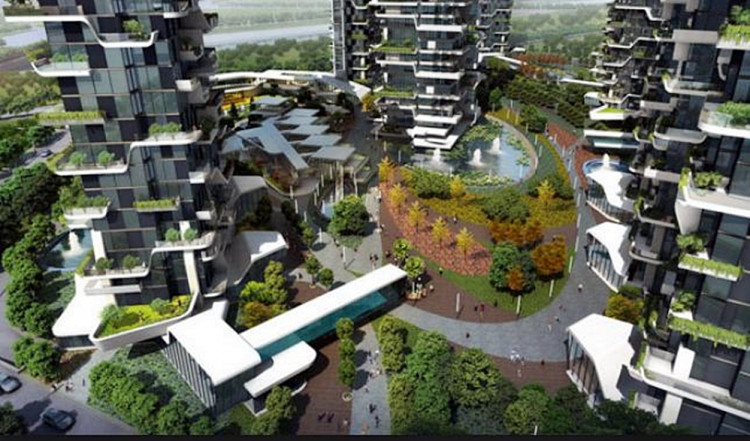The multi-trillion dollar real estate market in China, the world's largest, has slowed down and the short-term outlook isn't at all rosy. The culprit once again: soaring prices.
New home sales jumped to $1.69 trillion, meaning some 22 million more Chinese moved out from rural areas into cities, said Stansberry Churchouse Research, a wealth management firm based in Singapore citing government data. But with 600 million Chinese or 40 percent of the country's population, still living in rural areas, China's real estate market seems to have a long way to go before reaching saturation.
Government data also showed 1.44 billion square meters of apartments and condominiums were sold. That's the equivalent of 5.76 million new homes by American standards. The government, however, recently placed restrictions on new home purchases, and is expected to do so again to prevent widespread speculation, said Stansberry Churchouse.
This will dent the further growth of investments in real estate development. Investments rose seven percent in 2017 year-on-year, or just 0.1 percentage point higher than 2016, said the National Bureau of Statistics (NBS).
China's leveraged banks are jumping into the real estate bubble to take their share of a recent burst in new housing starts and land purchases that unexpectedly showed growth strong through the first five months of 2018. Incredibly, investments in residential real estate jumped 14 percent while development loans skyrocketed 21 percent. Mortgage growth is now at 20 percent.
And this despite government restrictions on new home purchases. Analysts said the relentless spike in home prices will eventually slow down real estate growth.
Strong growth over the past few years caused the average price of the developed property (condominiums and residential apartments) to balloon by 18 percent since July 2015. Prices soared by more than 50 percent in In the Beijing, Shenzhen, Shanghai and other big cities.
Speculation for short-term gain is again fueling soaring real estate prices in most cities, which are rising at least twice as fast as the 5.5 percent average mortgage rate. As a consequence, buyers now need to fork over large wads of cash upfront as down payments.
To curb this relentless speculation, the government in March 2017 again raised the requirements to purchase the property. It increased from 20 percent to 30 percent the minimum down payment on second home purchases in second- and third-tier cities. This is about twice the money a typical second-home buyer in the U.S. has to put up as a down payment.
Beijing also ordered state-owned banks to increase, from 70 percent to 80 percent, the minimum down payment for privately-developed residential projects in first-tier cities. Although a prudent move, this decision made home unaffordable for smaller buyers in many of the biggest cities.
Beijing again turned the screws in September 2017, when local governments in a number of cities banned investors from selling newly purchased homes for up to five years. Other local governments forbade investors from buying a second home for up to three years.
The net result of these moves to curb speculation is that home sales growth in China slowed to just 3.3 percent in the first half of 2018 from after growing by 16.1 percent in the first half of 2017.






